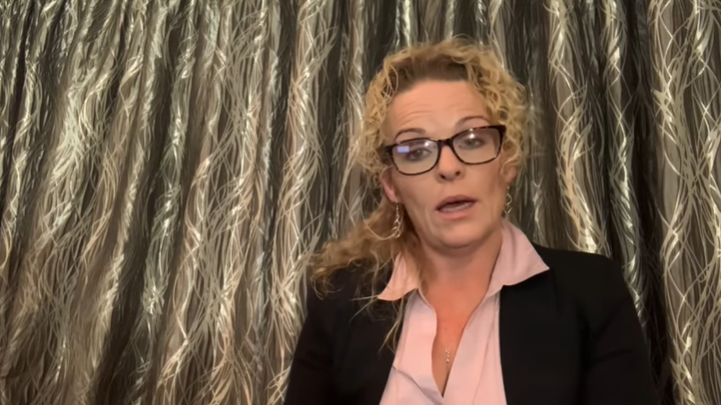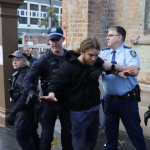New Zealand Deportees Take Class Action Against Morrison Migration Regime

A group of lawyers, activists and deportees in Christchurch has just announced its intention to launch a class action in the Australian Federal Court to challenge the Coalition government’s mass deportation of New Zealander residents, along with those of other nationalities.
Since then immigration minister Scott Morrison oversaw the tightening of migration laws in late 2014, the federal Coalition has cancelled the visas of at least 6,000 residents. The largest distinct cohort affected has been New Zealanders, with around 2,300 having been deported.
This program has seen the “fortress Australia” government internationally condemned over a deportation system that often sees long-term residents turfed out over the commission of minor offences, as well as a growing proportion over posing a mere risk to “health, safety or good order”.
Just this week, NZ prime minister Jacinta Ardern again criticised the deportation program. She claims it involves Australia deporting “Australian criminals”, as, at times, Kiwis who have spent almost their entire lives in this country – meaning they’ve been raised here – have been sent to NZ.
Following the 26 October class action announcement, those organising the case have been inundated with legal professionals and academics contacting from around the globe, asking how they can participate in and help support the case as awareness of the unjust program is spreading.
The 501 class action
“The class action will be for the people who have been detained or deported over section 501 since 2014 when the amendments were made,” said Filipa Payne, cofounder of deportee support group Route 501. “And it will also be for people who have been detained under section 116.”
“The reason why section 116 deportations are now part of the spectrum is their pathway into detention is quite a precarious situation as far as the judicial system goes,” she told Sydney Criminal Lawyers.

While NZ citizens have been most affected by Morrison’s deportation program, Payne stresses the class action will represent deportees and detainees of all nationalities affected by the 2014 changes, unless they opt out. This includes those sent to Nauru under these laws.
The deportee rights advocate further explained that for the moment her team is launching an official website with the details relating to the Route 501 Advocacy and Support class action. And from there, the case will be lodged with the Federal Court of Australia in about three weeks’ time.
“We are seeking accountability for the breaches of human rights and the lack of dignity that takes place in detention centres,” Payne outlined. “We are seeking the closure of Christmas Island, and we are countering the policy of indefinite detention.”

Unethical and rights-undermining
Introduced by current PM Scott Morrison in September 2014, the Character and General Visa Cancellation Amendment was part of a series of legislative changes that the newly-minted Abbott government immigration minister made back then to the Migration Act 1958 (Cth) (the Act).
The changes that have affected the deportation regime most prominently were those made to the character grounds test contained in section 501 of the Act. The test now sees noncitizens automatically deported for being sentenced to 12 months or more prison time.
The law holds for any number of sentences taken together. It includes those served concurrently, or sentences involving drug rehabilitation or mental health programs. So, while the government maintains it’s all about dealing with serious criminal offenders, the laws capture much more.
Section 116 of the Act contains a long list of reasons for visa cancellation, which includes an individual’s presence being “or may be, or would or might be, a risk to the health, safety or good order of the Australian community”. Payne advises that this section is increasingly coming into play.
In terms of our NZ residents, when the laws took effect in December 2014, Kiwis weren’t listed as one of the top nine nationalities in detention. But by December 2015, they were the second largest group. And by December 2016, New Zealanders slated for deportation were number one.
The latest Home Affairs statistics reveal that in March this year, New Zealanders continued to be the largest cohort being detained in Australian onshore immigration facilities.
Justice sought
Key demands that the 501 class action will be prioritising are that the Morrison government and security firms are held accountable for the treatment of the “unlawful noncitizens” that they’ve been locking up in immigration centres, often long-term.
They also want to see a ruling around the unlawfulness of indefinite detention. And another priority is to see the closure of the Christmas Island facility.
Those on board so far understand that financial compensation is unrealistic, so what they’re really seeking is justice.
A lesser-known issue that Payne says will also form part of the likely multiple actions is the fact that Australian banks are closing the accounts of noncitizen detainees.
This means that not only are they barred access to their finances in detention, but it’s not possible to obtain these funds after arriving in a foreign country.
“They can’t get their money. Their own personal earnings are taken from them,” Payne made clear. “The banks have started doing this. It’s not just to New Zealanders, but it’s also other people being deported to other countries.”
“I know one person who had over $70,000 in their bank account, which is now gone forever.”
An international disgrace
Speaking at a press conference in Queenstown on Monday, Morrison stated that the laws don’t simply target Kiwis but apply to all foreign residents. And one of the key reasons Australia has one of the most successful immigration policies on the planet is that it’s clear about law-breaking.
According to Payne, not only is this deportation regime destroying lives, but it’s also harming Australia’s international reputation. She’s had lawyers from around the globe contact since announcing the action, and two NZ universities have offered their services in building the case.
“It’s becoming more draconian and abusive. We’ve got a government that instead of addressing ongoing human rights abuses is trying to deny rights further in the form of indefinite detention,” she concluded.
“How can it be legal to detain someone for the rest of their life?”







